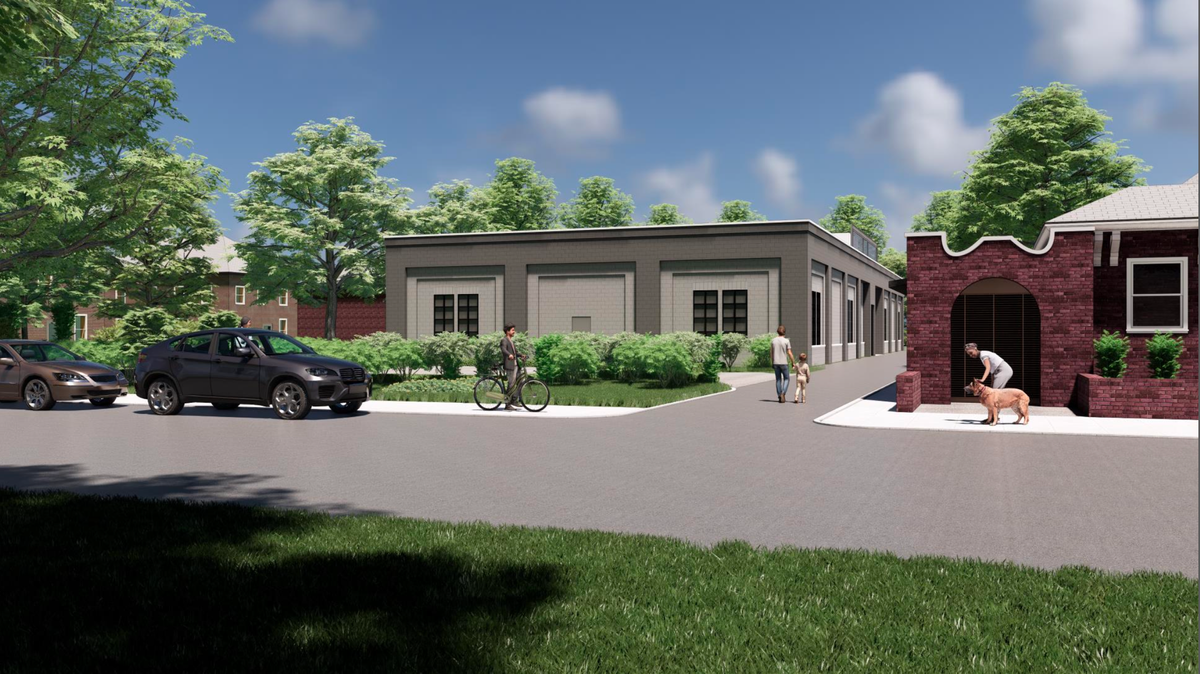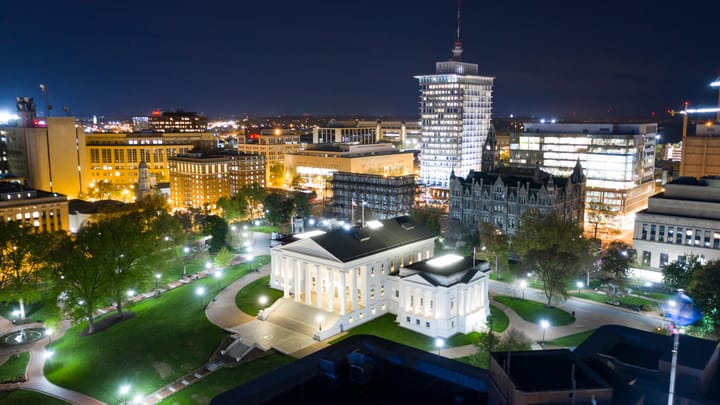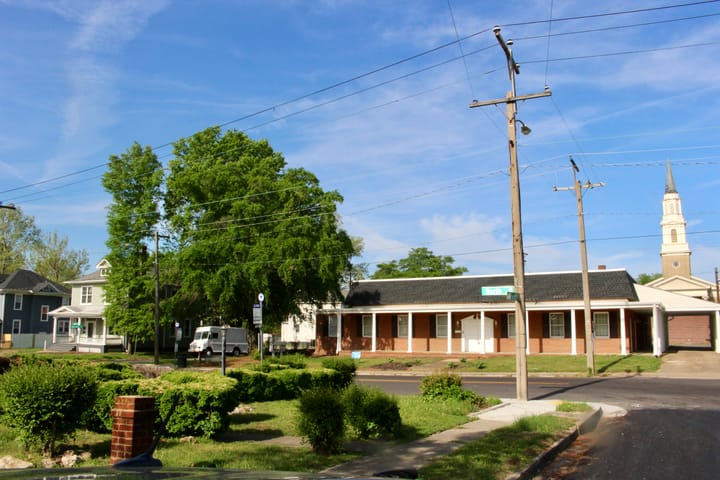Neighbors sue over VMFA warehouse plan, but judge declines to order emergency stop

A group of Museum District residents fighting the construction of an art storage warehouse near their homes has filed a lawsuit against the Virginia Museum of Fine Arts seeking to block the project.
But after a post-Christmas court hearing, a local judge declined to issue a temporary restraining order that would’ve blocked the plan before construction could begin.
The museum is planning to build a 12,000-square foot art storage facility on a plot of land it controls behind the museum’s Studio School at the corner of Grove and Sheppard Street in the middle of a largely residential block. According to museum representatives, the proposed facility will give VMFA more room to store works of art as it begins a broader, $261 million expansion of the main museum building.
Officials have indicated the warehouse is allowed because government-owned museums fit into residential zoning districts under the same exception for parks, libraries and schools. However, the opposing neighbors feel the museum is abusing its status as a public institution to build a large industrial building unnecessarily close to their homes in a historic city neighborhood.
The lawsuit filed last month argues the warehouse shouldn’t be considered an accessory building for the museum because it’s “down and across the street” from the main VMFA site and far bigger than typical outbuildings like sheds or garages. The neighbors have specifically raised concerns about the warehouse’s walls blocking sunlight and impeding alley access to their homes, hits to their property values and noise from the climate control systems needed to preserve the art stored in the building.
“These systems will be loud, will need to run around the clock, and will be located directly behind Plaintiffs’ homes, in some cases right outside their bedrooms,” the lawsuit says.
In a legal filing Thursday, VMFA attorneys said a court-imposed delay could drive its costs higher and said the proposed warehouse is critical to the upcoming expansion.
“The museum needs somewhere to move its historic artwork as part of the expansion; if there’s nowhere to move it, the expansion cannot go forward,” the museum’s representatives argued.
On Dec. 30, Circuit Court Judge Jacqueline S. McClenney approved a brief pause in the project as she evaluated the case further. In a written opinion released Thursday, McClenney effectively lifted that pause, ruling the neighbors haven’t shown they’ll suffer “immediate and irreparable harm” without emergency intervention by the court.
The judge noted the city has not yet approved a building permit for the warehouse. If that occurs, the judge wrote, the plaintiffs “may have additional remedies at their disposal.”
In addition to the VMFA, the lawsuit names city Planning Director Kevin Vonck and Zoning Administrator William C. Davidson as defendants because it argues the city is improperly allowing the warehouse to go forward.
The plaintiffs in the case are Thomas Courtney, Denny Covington, Ivelina Metcheva, Eugenia Reese, Richard Reese and Floyd Grove Sheppard LLC. They are represented by lawyers from the Sands Anderson law firm. The museum is being represented by attorneys with Williams Mullen.
In a reply brief filed on Davidson’s behalf, attorneys for the city said the plaintiffs cannot seek action from the courts without first going through the administrative process of filing an appeal with the Board of Zoning Appeals.
That and other procedural issues have not yet been resolved by the judge, but the initial decision means both the city and the museum are free to proceed with the warehouse plan while the rest of the lawsuit is pending.
The museum has said it intends to begin and complete construction on the warehouse this year.
No other court dates have been set in the lawsuit.






